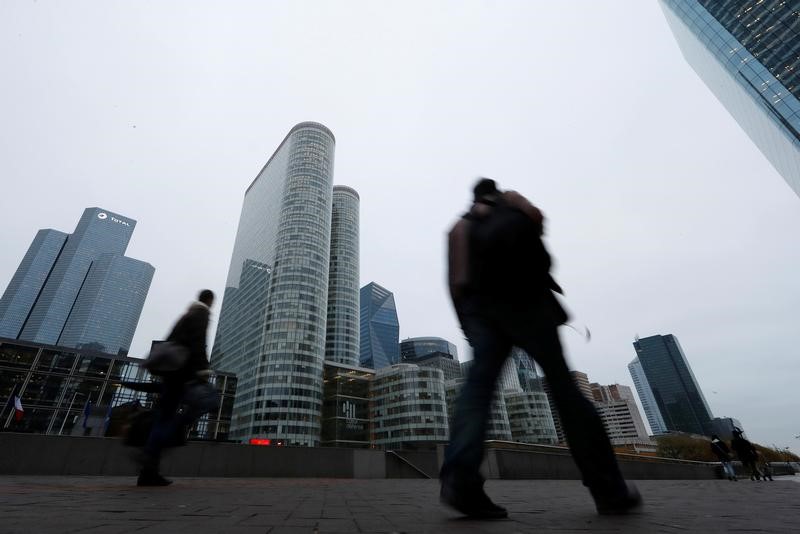By Michel Rose
PARIS (Reuters) - France brought its public deficit below the European Union's three percent limit for the first time in a decade last year, data showed on Monday, supporting President Emmanuel Macron's goal of restoring French fiscal credibility in Brussels.
Shrinking to a better-than-expected 2.6 percent of gross domestic product in 2017, the budget shortfall came in below the government's 2.9 percent target, the best reading since before the global financial crisis in 2007.
Macron, a fervent europhile, had made respecting EU budget rules, after years of delays by his predecessors, a cornerstone of his aim to repair France's reputation as a serial offender of euro zone rules.
The improvement should give welcome support to Macron's quest to convince Germany, the EU's paymaster, to reform the euro zone and help overcome mistrust between northern European countries and what they perceive as profligate southern members.
"It helps us get back our credibility in Europe," Finance Minister Bruno Le Maire told Franceinfo radio. "Today, when the president speaks in Europe, he is listened to and respected."
Shortly after he was elected last May, Macron took belt-tightening measures, including cuts to a popular housing allowance, to make sure the budget deficit would not overshoot the three percent limit, costing him precious points in his popularity rating.
However, figures from the INSEE statistics office showed the better-than-expected improvement in France's public finances was also in a large part due to stronger tax receipts, boosted by brisker economic growth.
The French tax burden rose to a record of 45.4 percent of GDP in 2017 from 44.6 percent the year before. Government spending rose by 2.5 percent and government revenue by 4 percent, INSEE said.
France was also one of only two euro zone countries still under the European Commission's excessive-deficit procedure, with only Spain expected to have done worse in 2017, according to European Commission forecasts.
France was on course to exit the procedure, which had meant increased monitoring by Brussels, EU Commissioner Pierre Moscovici said, but said the government should not let up on its efforts to continue reducing the deficit.
On the domestic front, the better-than-expected deficit figures could represent a headache for the president.
Calls are growing within his party for some of the windfall, as it has come to be called, to be spent, instead of being used entirely to pay down debt, as his government has promised.
Finance Minister Bruno Le Maire has dismissed such calls, saying France's debt, which reached 97 percent of GDP last year, was unsustainable.

On Monday, Le Maire said he maintained France's deficit objective of 2.8 percent in 2018, adding: "I will do everything to do better than what's been announced."